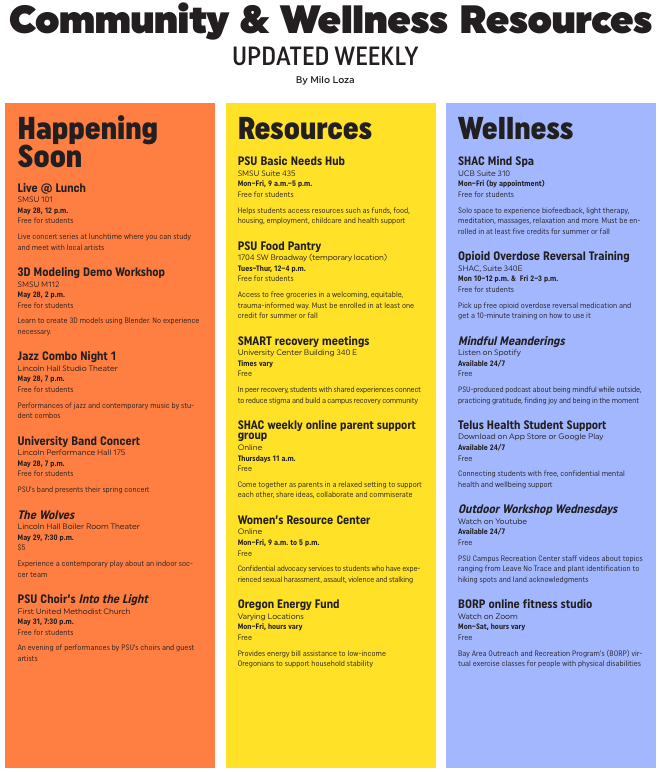Think a degree will secure you a job? Think Again
Cathy Nullan won’t graduate until spring, but the Texas Christian University senior already dreads the prospect of unemployment.
Nullan has spent five years preparing for a career – studying two majors, learning another language, attending professional conferences and working at a summer internship – all to build a resume that will impress employers. But with the economy mired in an ongoing slump, she worries that her skills won’t be enough to land her a permanent paycheck.
Her concerns aren’t unfounded.
The fall semester was prime time for employers to visit college campuses in search of entry-level workers. But Texas colleges are seeing a decline in companies’ recruiting for the second year in a row, some by as much as 50 percent.
That decline is a national trend: The National Association of Colleges and Employers estimates that businesses will hire 3.6 percent fewer new graduates this academic year.
Nullan, who is pursuing degrees in computer science and e-business, had hoped to find work as a consultant or as a liaison between a company’s business and technology divisions. But her expectations have dimmed as the economic downturn ravaged the technology sector.
The Duncanville, Texas, native is following in the footsteps of her brother, a TCU e-business major who graduated in May. He has been searching for a job ever since.
“I’m worried because I have that same major,” Nullan says. “I’m really concerned. I don’t know where to look.”
Campus career counselors this year are advising students like Nullan to cast a wide net for potential jobs and to apply for jobs they might previously have deemed unworthy.
Last spring’s graduates have followed that path, settling for lower starting salaries as frugal employers’ demands waned for young, educated workers.
For example, average starting salaries fell 4.7 percent, to $51,100, for computer engineers. And liberal arts majors’ pay dropped as much as 12 percent, sinking below $30,000 for many of them, according to a survey by the colleges and employers association.
Barbara Peet, director of career services at the University of Texas at Arlington, says seniors are facing tougher competition for jobs, and many employers who used to be aggressive recruiters have scaled back their hiring.
The university’s job fair in September drew fewer companies than in the past, continuing a trend that began last year.
“I think we’re still seeing cautiousness from the employers,” Peet said. “Quite a few of them that have come year after year were like, `Not this fall. We don’t want to be there if we don’t have positions to offer.’ ”
Other area colleges also have seen their job fairs shrink.
TCU’s job fair this fall attracted recruiters from about 40 companies, down from 86 at the job fair’s peak in spring 2001, says Bill Stowe, the university’s associate director of career services.
“They are hiring, but they’re just hiring for attrition. They’re not expanding,” he says. “The best I can say is, I feel like it’s just flat. There are opportunities, but there’s not a lot of growth.”
At Enterprise Rent-a-Car, one of the nation’s largest recruiters of college students, hiring remains steady.
The company expects to take on 6,000 graduates by spring, says Gretchen Burkhart, a regional human resources manager.
That target is similar to Enterprise’s hiring for the past several years. But students now are vying for entry-level slots in the company’s management-training program against experienced candidates who wouldn’t have been interested in those jobs when the economy was stronger.
“It has changed because we have seen an increase in our applicant pool,” Burkhart says.
Cellphone maker Nokia, which has its Americas headquarters in Irving, Texas, is recruiting on campuses and at job fairs this year for posts in the Metroplex and California.
Still, the telecommunications industry’s meltdown has prompted the company to lay off workers as recently as August, and Nokia is much more cautious about building its payroll than in past years, spokeswoman Laurie Armstrong said.
“It’s fair to say that hiring is not quite up to the numbers as it was a couple of years ago,” Armstrong said, “but we’re still positive toward it and certainly looking for that good talent.”
Two noticeable exceptions to the recruiting declines are nursing and education.
Although employers’ overall hiring on campus has fallen, schools and hospitals, which are contending with labor shortages all over the country, are still hungry for employees.
Recruiters from 50 school districts from as far away as Alaska flocked to a career fair last month at Texas Women’s University in Denton, says Deidre Leslie, director of career services. And health care companies have almost doubled their attendance at the university’s recent fairs.
That leaves budding nurses and teachers juggling many more opportunities than students in other fields, Leslie says.
“They can almost select the district or the health care facility they’d like to work, and present themselves: `Here I am,'” Leslie says. “Liberal arts students, they’ve got to be much more creative, as well as the business students, in their approach. It’s important for them to sell their skills.”
At Southern Methodist University, where employers’ participation in career fairs has fallen by a third since 2000, advisers are urging job hunters to try an array of tactics.
Thompson suggests going online to research career options and emphasized that the PSU Career Center is there to help students find jobs. The center is located in the University Services Building Room 402.
Jerry Alexander, director of SMU’s career development center, says on-campus interviews with recruiters offer the most no-nonsense approach to finding jobs, but many students won’t have that luxury. So he encourages them to develop their skills and build relationships with alumni and other professionals who can help in their search.
“If I could dispel one myth, it’s that most of us will get our jobs off the Internet,” Alexander said. “To go on to monster.com and expect to find the job you want, the competition is much stiffer.”




